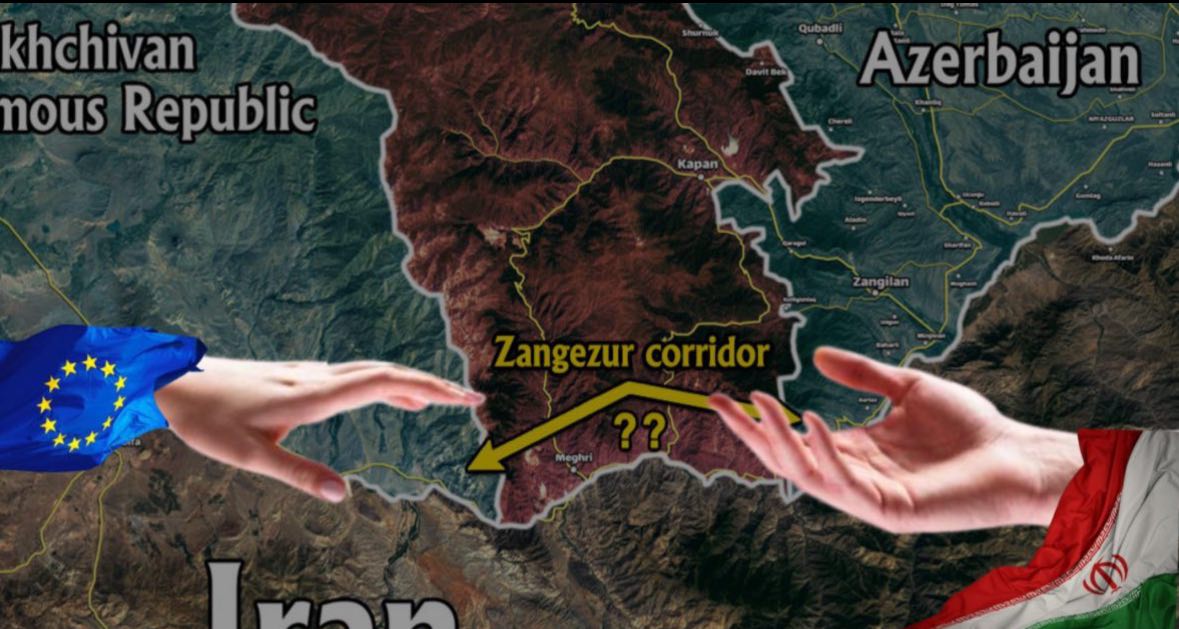The Zangezur Corridor: A New Chessboard in the South Caucasus
The Zangezur Corridor: A New Chessboard in the South Caucasus
According to Iran Gate News Agency, amidst the rapid geopolitical developments in the South Caucasus, the project known as the Zangezur Corridor has once again become the focus of attention for regional and international analysts and policymakers.
This route, proposed by the Republic of Azerbaijan, aims to connect the Nakhchivan Autonomous Republic to mainland Azerbaijan through southern Armenia. Due to the involvement of regional powers like Turkey and the support of some extra-regional players, it has turned into a multi-layered and complex project.
Given the strategic importance of this route from a transit, security, and economic perspective, and following the weakening of Russia’s traditional position in the Caucasus due to military conflicts in Ukraine, developments surrounding this project could have significant impacts on regional balance and the standing of various players, including the Islamic Republic of Iran. This report seeks to analyze the various dimensions of the Zangezur project and its potential consequences.
Examining Geo-strategic Developments Surrounding the Proposed Zangezur Route
The project known as the Zangezur Corridor has emerged in recent years as one of the controversial topics in the geopolitics of the South Caucasus.
This route, which primarily targets connecting mainland Azerbaijan to the Nakhchivan Autonomous Republic through parts of southern Armenia, has formed in the heart of regional and extra-regional competitions, attracting the attention of various actors including Azerbaijan, Turkey, some Western countries, and also Israel.
After the end of the Second Karabakh War in 2020 and the signing of a trilateral agreement between Baku, Yerevan, and Moscow, the issue of opening regional communication routes was once again placed on the agenda. Although the agreement text does not directly mention the construction of the Zangezur Corridor, Azerbaijani officials, with Turkey’s support, have raised this issue within the framework of redefining regional transport and connectivity equations.
From Ankara’s perspective, this route has the potential to facilitate direct communication with the Turkic-speaking republics of Central Asia and can aid in fostering Pan-Turkic convergence initiatives.
In this context, the Zangezur route is not merely seen as a transport project; rather, some observers view it as an element of an emerging geopolitical structure aimed at redefining power relations in the South Caucasus.
Israel, too, which in recent years has established close security, military, and technological relations with Azerbaijan, has found a significant place in this equation.
Bilateral cooperation in various fields, including the sale of weapons and surveillance equipment, especially during past conflicts, indicates a high level of strategic connections between the two parties.
From the West’s perspective, especially that of the United States and the European Union, developing new transit routes in the South Caucasus can be considered part of a strategy to reduce dependency on Russia and Iran for energy supply and East-West connectivity.
In this framework, initiatives like the Middle Corridor, which focuses on connecting China to Europe via Central Asia, the Caucasus, and Turkey, are seen as complementary to projects like Zangezur. With the realization of these routes, the geo-economic position of some regional countries, including Iran, in international transit projects may undergo changes.
On the other hand, the reduction of Russia’s traditional influence in the South Caucasus following the military conflict in Ukraine and the concentration of its resources on other fronts has created space for increased activity by players like Azerbaijan, Turkey, and Western countries.
In such circumstances, Baku’s actions to pursue the Zangezur project with the support of some foreign players have become part of new regional dynamics.
Meanwhile, from Iran’s perspective, the Zangezur region holds special importance in economic, security, and connectivity dimensions. This area is considered one of Iran’s few gateways to the Caucasus and Central Asia and plays a key role in land trade exchanges, transit of goods, and securing logistic chains.
Accordingly, changes in regional transit geography patterns can impact Tehran’s economic and geopolitical bargaining power.
On a broader scale, projects like the Zangezur Corridor can be seen as part of the process of redefining the geopolitical map of Eurasia in the post-Ukraine war era.
Simultaneously, as regional powers strive to solidify their spheres of influence, countries like Iran are compelled to adopt more balanced approaches in engaging with the region’s rapid developments while safeguarding their interests.
This requires strengthening economic diplomacy, utilizing existing regional capacities such as the Eurasian Economic Union, and leveraging opportunities arising from projects like the North-South Corridor.
It should also be emphasized that many transit routes in the region are not necessarily aimed at eliminating competitors but are defined as complementary options.
Therefore, a sole focus on competitive approaches may hinder optimal exploitation of opportunities for regional cooperation and synergy. Various actors, including Iran, can take steps to maintain their role in existing equations and, if necessary, participate in designing new cooperation frameworks by adopting mixed policies.
Ultimately, the formation or non-realization of the Zangezur Corridor heavily depends on future developments in Azerbaijan-Armenia relations, the presence of major players in the Caucasus, and the region’s diplomatic atmosphere.
What is certain is that the future of this route is intertwined with complex dynamics of interests, rivalries, and mutual cooperation beyond its technical or logistical aspects, requiring multi-faceted and strategic analysis by all interested players.

